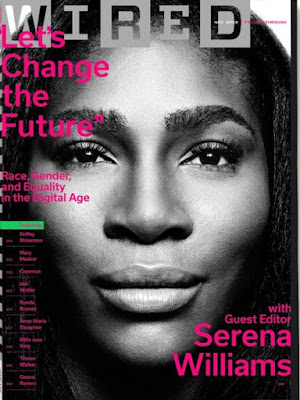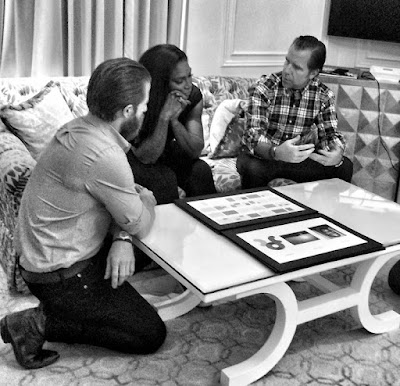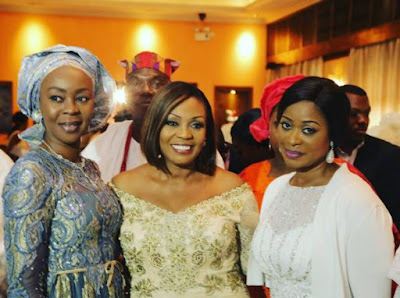Tennis champion, Serena Williams will be guest editor for Wired Magazine's November edition - Its chief editior made the announcement while dealing with equality issues that is affecting every race in America and outside it. The article can be read after the break.
BACK IN 2008, when I was competing in the US Open, I would keep little “match books,” where I’d write affirmations to myself and read them during matches. It worked pretty well. But before long I found an even better way to inspire myself: I started using affirmations as the passwords to my phone and my computer. (No, I’m not going to tell you what my current affirmation is!) You should try it. You’ll be surprised how many times a day you log in and have an opportunity to trigger that positivity. I love that I can use technology that way.
Here’s one of the affirmations I gave myself when I was younger: “I will work in Africa and help kids and help people.” And I did. I opened a school in Kenya in 2008 and a second in 2010. Now, sometimes in Africa they send only the boys to school. So we had a strict rule that our schools had to be at least 40 percent girls. It was impossible to get 50-50 boys to girls, and we really had to fight for 60-40. But we got it.
Equality is important. In the NFL, they have something called the Rooney rule. It says that teams have to interview minority candidates for senior jobs. It’s a rule that companies in Silicon Valley are starting to follow too, and that’s great. But we need to see more women and people of different colors and nationalities in tech. That’s the reason I wanted to do this issue with WIRED—I’m a black woman, and I am in a sport that wasn’t really meant for black people. And while tennis isn’t really about the future, Silicon Valley sure is. I want young people to look at the trailblazers we’ve assembled below and be inspired. I hope they eventually become trailblazers themselves. Together we can change the future.
Equality is important. In the NFL, they have something called the Rooney rule. It says that teams have to interview minority candidates for senior jobs. It’s a rule that companies in Silicon Valley are starting to follow too, and that’s great. But we need to see more women and people of different colors and nationalities in tech. That’s the reason I wanted to do this issue with WIRED—I’m a black woman, and I am in a sport that wasn’t really meant for black people. And while tennis isn’t really about the future, Silicon Valley sure is. I want young people to look at the trailblazers we’ve assembled below and be inspired. I hope they eventually become trailblazers themselves. Together we can change the future.
And when we’re not talking, we can get coding. Adria Richards (see “Take Back the Net”) has suggested solutions to online harassment, including my favorite, Send-a-Puppy, where you’d send a digital doggy to support someone who’s being harassed. And we can champion efforts that get kids interested in computers, efforts like Kimberly Bryant’s Black Girls Code.
Nothing like Black Girls Code existed when I was growing up. (And I know what it’s like to be interested in a field where the other kids don’t look like you.) So I think we’re making progress. But we can keep working even more to increase equality—whether it’s making sure to interview black candidates for tech jobs or standing up to cyberbullying or making sure that our technology is designed by all kinds of people. Eventually we’re going to make the world better. For everyone. And hopefully my next school will be 50-50.
Source: Narrated by Sarah Fallon from Wired Magazine






Comments
Post a Comment
Contact me for Adverts/Tipoff
Email: lorejobi@gmail.com